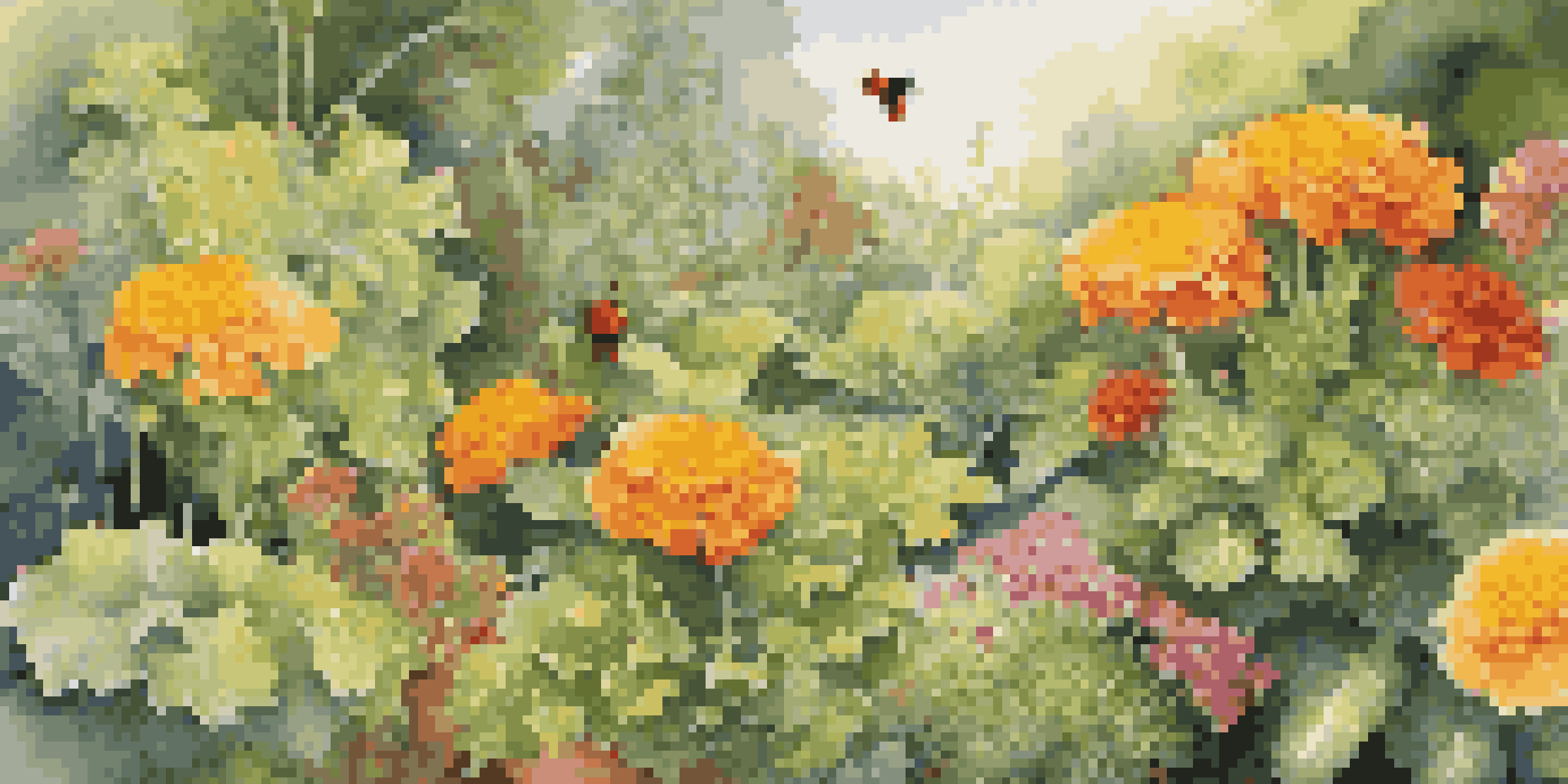Avoiding Pests in Small Gardens: Natural Methods

Understanding Common Garden Pests and Their Impact
Small gardens can be a haven for pests, from aphids to slugs, which can wreak havoc on your plants. Understanding these common pests is the first step towards effective prevention. For instance, aphids suck sap from plants and can quickly multiply, leading to stunted growth and even death of your precious flowers or vegetables.
Creating a Healthy Garden Environment
A healthy garden starts with healthy soil. By enriching your soil with organic matter, you create an environment that supports strong plants, making them less susceptible to pests. For example, compost not only nourishes your plants but also encourages beneficial insects that prey on harmful pests.
Know Your Garden Pests
Understanding common pests like aphids and slugs is crucial for effective prevention and plant health.
Companion Planting for Pest Control
Companion planting is a natural way to deter pests while promoting plant health. For example, marigolds can repel nematodes and other pests when planted alongside vegetables. This method not only enhances biodiversity but also creates a more vibrant and resilient garden ecosystem.
Using Natural Deterrents: Herbs and Essential Oils
Certain herbs and essential oils can act as natural pest repellents. For instance, peppermint oil is known to deter ants and spiders. By mixing a few drops with water and spraying it around your garden, you can create a barrier without resorting to harmful chemicals.
Create a Healthy Soil Environment
Enriching your soil with organic matter fosters strong plants that are less vulnerable to pests.
Encouraging Beneficial Insects in Your Garden
Not all bugs are bad for your garden; in fact, many beneficial insects can help control pest populations. Ladybugs and lacewings, for example, feed on aphids and other garden pests. By planting flowers that attract these helpful insects, like dill or yarrow, you can create a natural pest management system.
Physical Barriers to Protect Your Plants
Sometimes, the best defense is a good offense. Utilizing physical barriers like row covers or nets can protect your plants from pests without harming the ecosystem. These barriers not only keep pests at bay but also allow sunlight and rain to nourish your plants.
Encourage Beneficial Insects
Planting flowers that attract beneficial insects like ladybugs can naturally manage pest populations in your garden.
Regular Maintenance and Observation
Keeping a close eye on your garden can help you catch pest problems before they escalate. Regular maintenance, such as weeding and monitoring plant health, ensures that any potential threats are managed early. A quick inspection can save your plants from larger infestations down the line.
Embracing Patience and Persistence in Pest Control
Natural pest control methods require patience and persistence, as results may take time to manifest. It's essential to remain committed to your strategies and adapt them as needed. Over time, you’ll find that a healthy garden will not only look beautiful but also thrive with fewer pest issues.